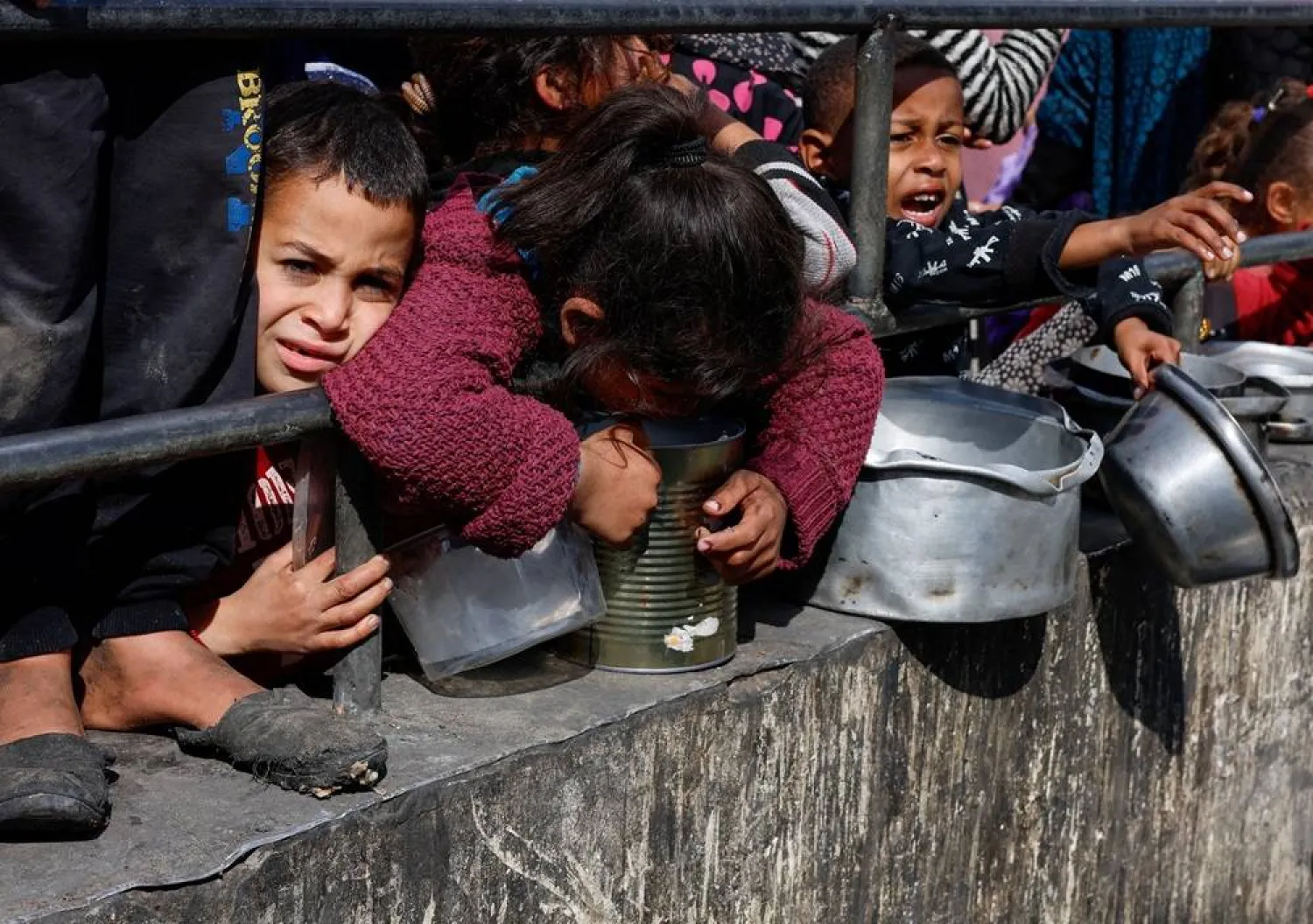The United States on Tuesday again vetoed a draft United Nations Security Council resolution on the Israel-Hamas war, blocking a demand for an immediate humanitarian ceasefire as it instead pushes the 15-member body to call for a temporary ceasefire linked to the release of hostages held by Hamas.
Thirteen council members voted in favor of the Algerian-drafted text, while Britain abstained. It was the third such US veto since the start of the current fighting on Oct. 7.
"A vote in favor of this draft resolution is support to the Palestinians right to life. Conversely, voting against it implies an endorsement of the brutal violence and collective punishment inflicted upon them," Algeria's UN Ambassador Amar Bendjama told the council before the vote.
US Ambassador to the UN Linda Thomas-Greenfield signaled on Saturday that the US would veto the draft resolution over concerns it could jeopardize talks between the US, Egypt, Israel and Qatar that seek to broker a pause in the war and the release of hostages held by Hamas in the Gaza Strip.
"Demanding an immediate, unconditional ceasefire without an agreement requiring Hamas to release the hostages will not bring about a durable peace. Instead, it could extend the fighting between Hamas and Israel," Thomas-Greenfield told the council ahead of the vote.
The Algerian-drafted resolution vetoed by the US did not link a ceasefire to the release of hostages. It separately demanded an immediate humanitarian ceasefire and the immediate and unconditional release of all hostages.
"Simply calling for a ceasefire - as this resolution does - will not make it happen," Britain's UN Ambassador Barbara Woodward told the council after the vote. "The way to stop the fighting, and potentially stop it from restarting, is to begin with a pause to get hostages out and aid in."
Temporary ceasefire
The US has now proposed a rival draft resolution calling for a temporary ceasefire in the Israel-Hamas war and opposing a major ground offensive by its ally Israel in Rafah, according to the text seen by Reuters on Monday. It said it plans to allow time for negotiations and will not rush to a vote.
Until now, Washington has been averse to the word ceasefire in any UN action on the Israel-Hamas war, but the US text echoes language that President Joe Biden said he used last week in conversations with Israeli Prime Minister Benjamin Netanyahu.
The US draft resolution would see the Security Council "underscore its support for a temporary ceasefire in Gaza as soon as practicable, based on the formula of all hostages being released, and calls for lifting all barriers to the provision of humanitarian assistance at scale."
This is the second time since Oct. 7 that Washington has proposed a Security Council resolution on Gaza. Russia and China vetoed its first attempt in late October.
Washington traditionally shields Israel from UN action. But it has also abstained twice, allowing the council to adopt resolutions that aimed to boost aid to Gaza and called for extended pauses in fighting.
The war began when fighters from the Hamas militant group that runs Gaza attacked Israel on Oct. 7, killing 1,200 people and capturing 253 hostages, according to Israeli tallies. In retaliation, Israel launched a military assault on Gaza that health authorities say has killed nearly 29,000 Palestinians with thousands more bodies feared lost amid the ruins.
In December, more than three-quarters of the 193-member UN General Assembly voted to demand an immediate humanitarian ceasefire. General Assembly resolutions are not binding but carry political weight, reflecting a global view on the war.









